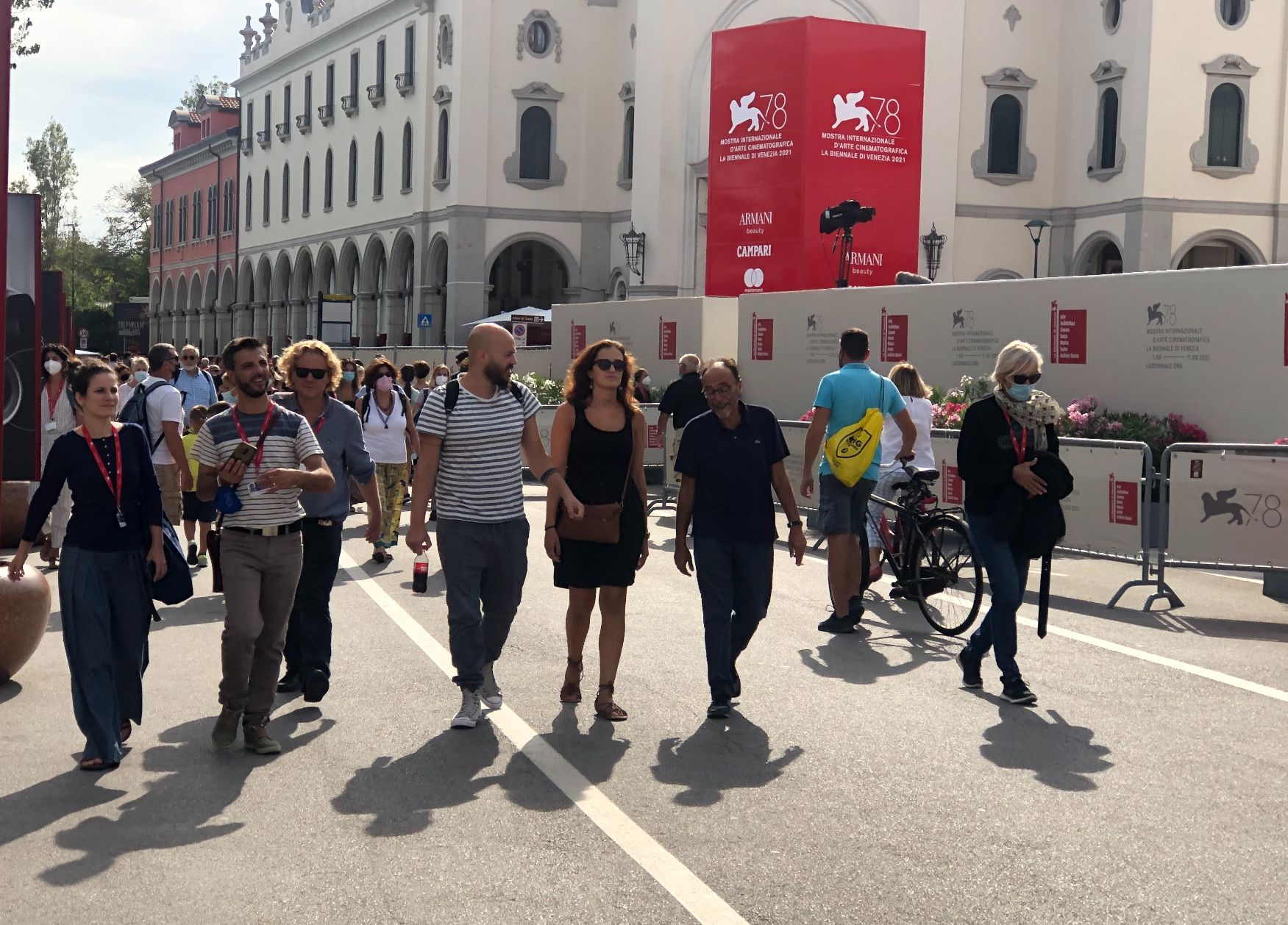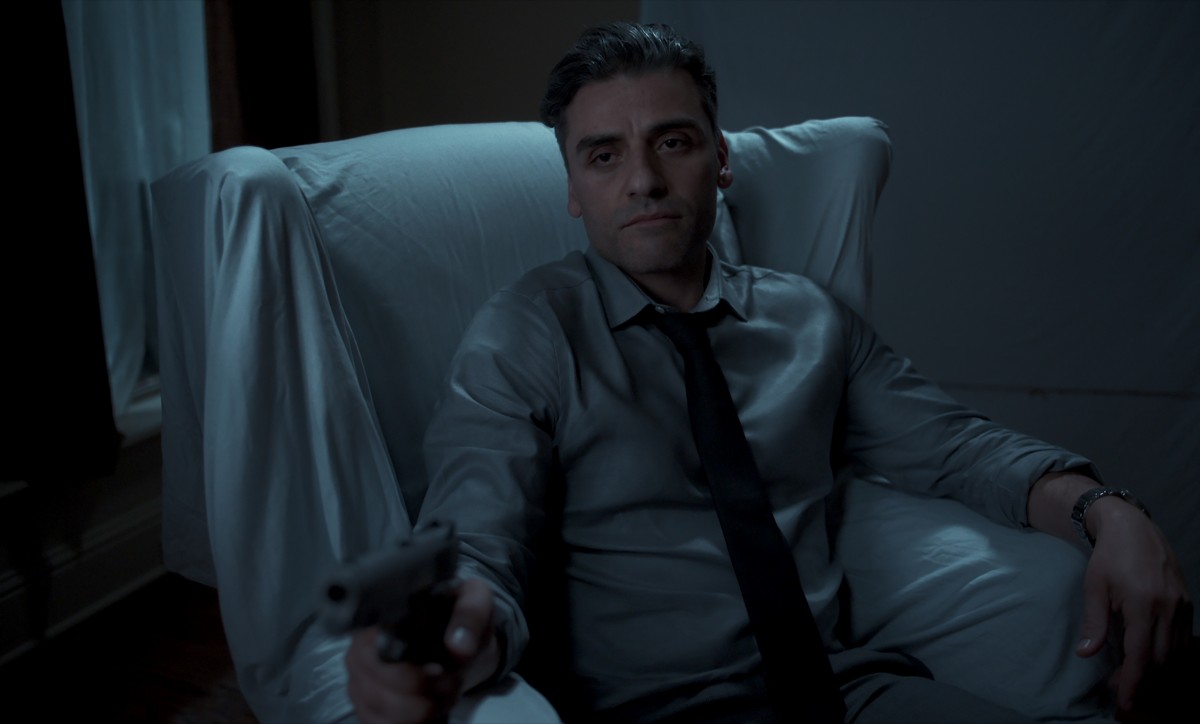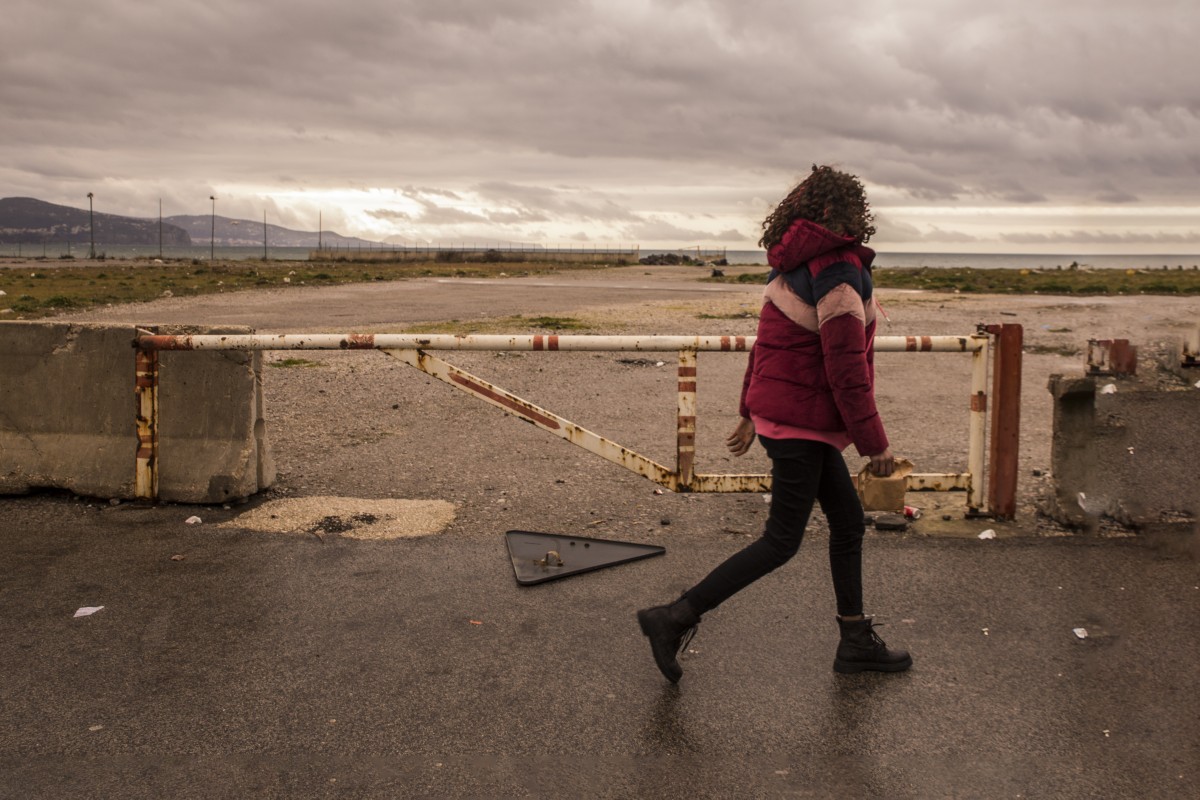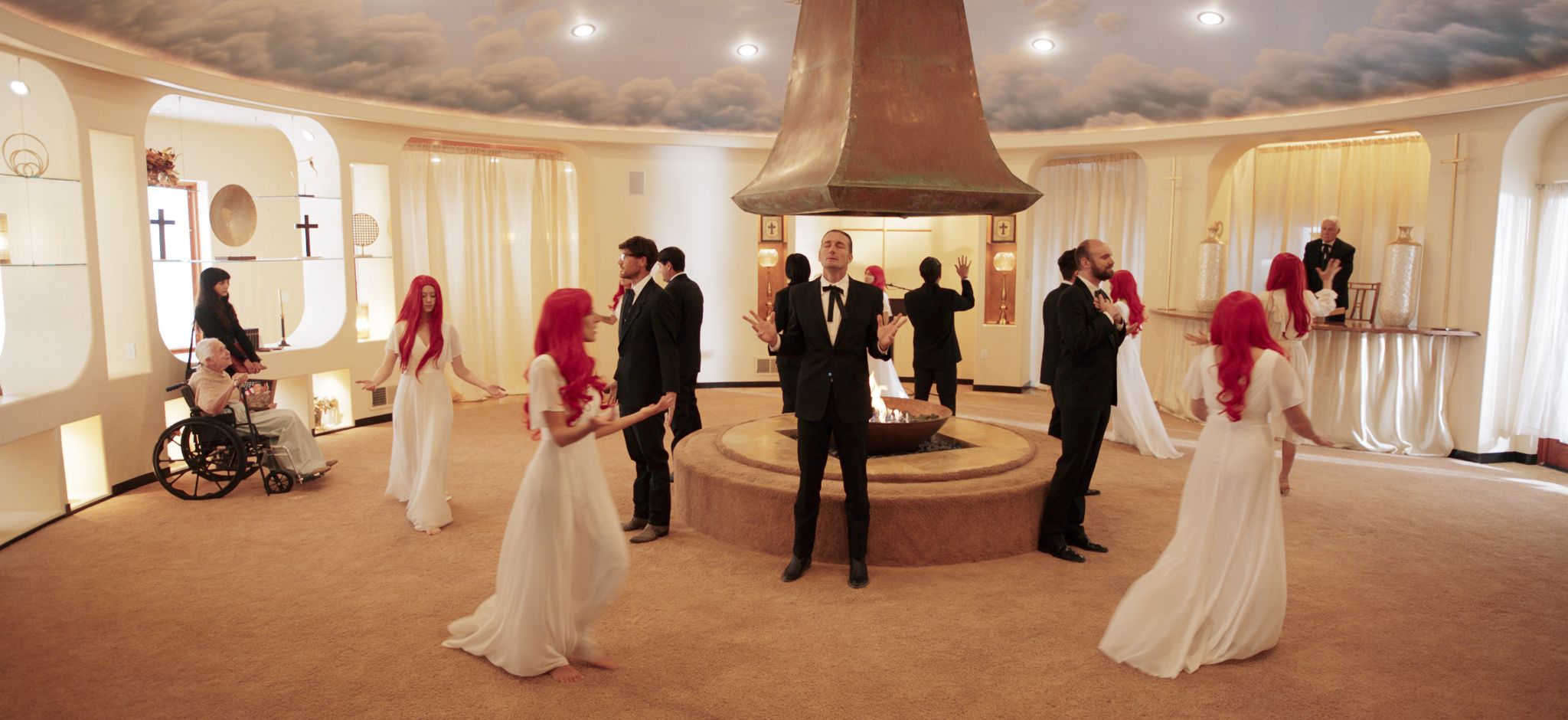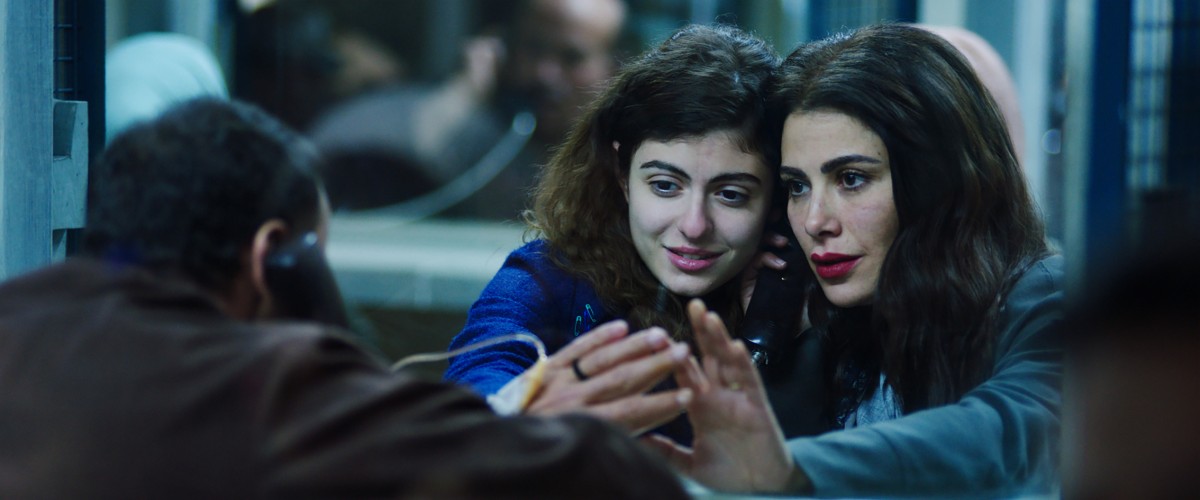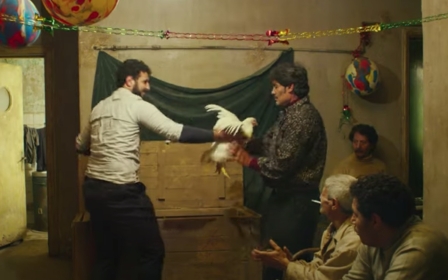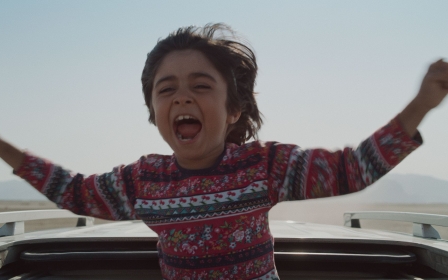Venice Film Festival: A stuttering start for Middle Eastern movies
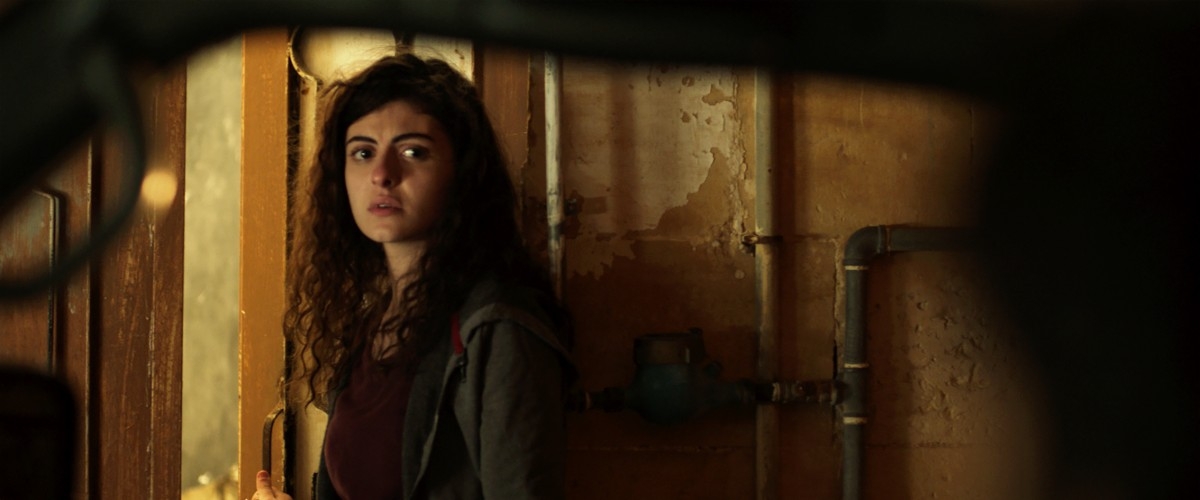
More than any movie fair organised this year, the 78th Venice Film Festival perfectly embodies the lingering uncertainty and confusion of the global cinema industry. With one foot in the bygone glamorous era of blockbusters and superstars, and another in an austere present informed by the rapid death of cinemas, the second Venice fest held during the Covid era is a strange beast.
The 10-day festival has been both a lavish launchpad of potential Oscar contenders and a generous, if scrambled, showcase of smaller films vying for the limited attention of an audience with increasingly unpredictable tastes and preferences.
Overall, the Middle Eastern stories in Venice this year have been disappointing so far, ranging from the predictable and the humdrum to the downright disastrous. Several notable Arab pictures are expected to make a splash in week two, but as of yet, the Middle Eastern stories drastically pale in comparison to those of Berlin and Cannes.
Covid-induced chaos
New MEE newsletter: Jerusalem Dispatch
Sign up to get the latest insights and analysis on Israel-Palestine, alongside Turkey Unpacked and other MEE newsletters
Unlike Cannes, Mostra (as the festival is known in Italian) did not change gears from last year, opting to maintain the occupancy of its theatres at half capacity while issuing significantly more accreditations.
The public has also been allowed back in the festival’s venues on the island of Lido, after restricting the access of non-professionals to the cinemas of Venice city in 2020.
The result has been utterly catastrophic - the most exasperating festival experience this writer has endured. From day one, booking tickets for screenings has been a herculean diurnal task that goes hand in hand with the occasional long queues at the entrance of the fest’s vicinity and slow internet connection.
If last year’s organisation was top-notch, this year has been nothing short of a mess, with smaller movies emerging as the biggest casualty, having struggled to attract the attention of critics and journalists daunted by the logistical chores of the festival.
The advantage of the pandemic for last year’s edition was that, in the absence of high-wattage Hollywood productions, smaller films took centre stage, culminating with the Golden Lion win for Chloe Zhao’s Nomadland.
This year, Hollywood came back to the Lido with a vengeance, unveiling some of the most anticipated awards season contenders presented at the diverse sections of the festival’s overstuffed selection.
Some of the high-profile titles of the lineup include Pablo Larrain’s Princess Diana biopic Spencer starring Kristen Stewart; Ridley Scott’s medieval actioner The Last Duel penned by Matt Damon and Ben Affleck; Jane Campion’s westerner The Power of the Dog starring Benedict Cumberbatch and Kirsten Dunst; David Gordon Green’s new entry in the Halloween franchise Halloween Kills; not to mention the latest offering by European Oscar winners Pedro Almodóvar (Parallel Mothers) and Paolo Sorrentino (The Hand of God) to name a few.
With Afghanistan continuing to dominate news headlines, different strands of the Middle East echo in the Venice films. The biggest and most notable title of the selection is Denis Villeneuve’s sci-fi blockbuster Dune, whose storyline about a number of white kingdoms vying for the riches of a depleted, primitive desert estate inhabited by a dark-skinned populace, is an obvious allegory for the western world’s colonialist relationship with the Middle East and Africa.
Paul Schrader’s The Card Counter, meanwhile, centres on a tortured former military interrogator haunted by his past in Abu Ghraib. Shame, governmental and institutional corruption, and the death of American morality inform the Taxi Driver and Raging Bull scriber’s bruising tale of guilt and redemption.
Californie
The first narrative feature by the director duo Alessandro Cassigoli and Casey Kauffman is a coming-of-age story centered on Jamila, a headstrong Moroccan immigrant living in a small town in northern Italy who aspires to have a career in boxing.
With an absent father who never makes an appearance in the film, and a distracted working mother, Jamila struggles to find her own way in life, as dreams clash with a mundane reality of few opportunities.
Documentarians-turned-fiction filmmakers Cassigoli and Kauffman follow Jamila from the age of nine to 14, as she is transformed from a hopeful, spirited girl to a resourceful - if slightly lost - young woman, confronting a reality less hospitable than the life she had imagined.
Adopting a verite style that harkens to post-Second World War Italian neo-realism, Cassigoli and Kauffman do not attempt to make any major or generalised statement about the marginalised lives of North-African immigrants in Europe. Californie is a character study of a girl coming in terms with how the European dream is out of reach; of the little prospects afforded to women of her race and class; of the waning protection of the traditional Arab family, and of a life she must learn to lead on her own.
Powered by a sizzling turn from newcomer Khadija Jaafari, Californie is a picture with a big heart that, nonetheless, does not convey anything fresh or illuminating about the young North African immigrant experience in Europe.
While undeniably earnest and abundant with energy, the film’s storyline is overly familiar, lacking any surprise and exploring none of the complicated dynamics of Arab familial relations. Californie is certainly watchable and gripping in parts (especially in its bittersweet conclusion), but ultimately, this is a story copiously told in almost the exact same manner as before.
The Land of Dreams
Universally acclaimed Iranian visual artist-turned-filmmaker Shirin Neshat returns to Venice with her third feature. Co-directed with Iranian director, Shoja Azari, The Land of Dreams is a gaudy satire of contemporary America co-written by the late legendary French scriptwriter, Jean-Claude Carriere.
Sheila Vand is Simin, a naturalised Persian American working for a new arm at the US Census Bureau that aims to collect and eventually control people’s dreams. Accompanied by an apathetic if dependable bodyguard (Matt Dillon) and a lovelorn suitor (William Moseley), Simin hops from one small American town to another, collecting dreams, confronting prejudice, and exposing the ignorance and casual racism of the Midwest.
Sketched with broad brushstrokes and punctuated with intermittently striking if hollow compositions, The Land of Dreams is a cartoonish, paper-thin American satire that states the obvious. The unenlightenment and racism of white America have been explored to death by endless pictures over the years and Neshat has nothing remotely profound to say about the subject.
Adopting a condescending, self-congratulatory approach that pits Simin’s intelligence and compassion against the mechanical idiocy of her American counterparts, the film remains one-noted from start to finish, scratching the surface of its environment without ever digging deep into the social and economic reasons that have shaped the characters she casually lampoons.
The desire of the American government to gain full control of the lives of its citizens is not exactly a novel idea; but why the state cares to seize the dreams of a populace already shackled by their own fears and bigotries is never explained.
In the sole intriguing line of the film, Simin visits a colony of elderly Iranian revolutionaries, briefly tapping on the perishing reveries of Iranian dissent. What the colony’s position in relation to this autocratic America might be is anyone’s guess.
Neshat squanders its promising fantastical premise over a storyline devoid of invention, insight or genuine intellectual curiosity. Its political immaturity is maddening; its gaudy visuals are exhausting; its glib humour is off-putting. The Land of Dreams is a flimsy, insubstantial work from a great artist still struggling to find her voice in cinema.
Amira
After scoring major critical and commercial hits with his previous directorial efforts Cairo 678 (2010) and Clash (2016), expectations were sky-high for Egyptian director Mohamed Diab’s first film set in Palestine.
Young starlet Tara Abboud is the titular 17-year-old Palestinian schoolgirl who has been conceived via artificial insemination from her imprisoned father’s smuggled semen. Amira’s seemingly tranquil existence is disrupted when it is revealed that her dad (the prisoner) is not her biological father, spiralling her into a vortex of dishonour, betrayal, loss and self-doubt.
The accessible, mainstream films of Diab - whose next project is the big Marvel series Moon Knight - are rich dramas of diverse characters who must sidestep their differences to recognise the humanity of one another. His brand of humanism is his strongest asset; his politics, however, have always been misguided, be it in his muddled view of feminism in Cairo 678 or representation of minorities in Clash, to name just a couple of examples.
Amira contains none of Diab’s signature humanism, while his politics take an even more erroneous, irresponsible turn. The end result is not only Diab’s weakest film to date; it is, by far, the worst Middle Eastern film of the Venice festival, and possibly of 2020.
Amira is a highly contrived, ridiculous melodrama seeping with endless implausible details that rob the story of any credibility it may have had. The biggest crime of the film though is its portrayal of Palestinian society.
The community of Amira - essentially a microcosm of Palestine as the film implies - is a band of freaks: a company of sexist brutes with not an ounce of empathy in their souls. The Palestine of Amira is a conservative, hypocritical place populated by merciless patriarchs only concerned with preserving their honour rather than safeguarding the daughter who grew with them and among them; a daughter who had no hand in the great shame they plaster her with.
At a time when the evolving discourse around women's rights across the region has shifted towards body integrity and equal rights, Diab is still stuck on honour and virginity
This is an insultingly regressive, bafflingly over-simplified, imprudently outdated treatment of a Palestine clearly concocted by an outsider. Its take on identity is shallow and largely underexplored; its depiction of the downgraded status of women in middle-class families is Victorian in essence.
At a time when the evolving discourse around women's rights across the region has shifted towards body integrity and equal rights, Diab is still stuck on honour and virginity; his women remain the sacrificial mothers and daughters who only exist in movies.
With images of free, angry Palestinian youth protesting the Israeli annexation still lingering in the world’s collective memory, one can’t help but wonder what the point of a film like Amira is at this given moment in time - a film that does more of a great disservice to Palestinians and the Palestinian cause than any conceivable benefit.
Following the film’s premiere on Saturday, Diab stated in an interview that the film is “not political”, which is naturally hogwash. As per German philosopher Walter Benjamin, any film presented to a mass audience becomes automatically political; and by default, any film made about Palestine cannot be anything but political.
Amira is another politically problematic picture by a filmmaker with an undeniable talent for entertaining mass audiences if not for progressive politics. It is the kind of film that in trying to expose the reverberating, devastating impact of the occupation may have been accepted 30 years ago, but not today - and certainly not in such a blunt, toxic fashion.
Middle East Eye delivers independent and unrivalled coverage and analysis of the Middle East, North Africa and beyond. To learn more about republishing this content and the associated fees, please fill out this form. More about MEE can be found here.


